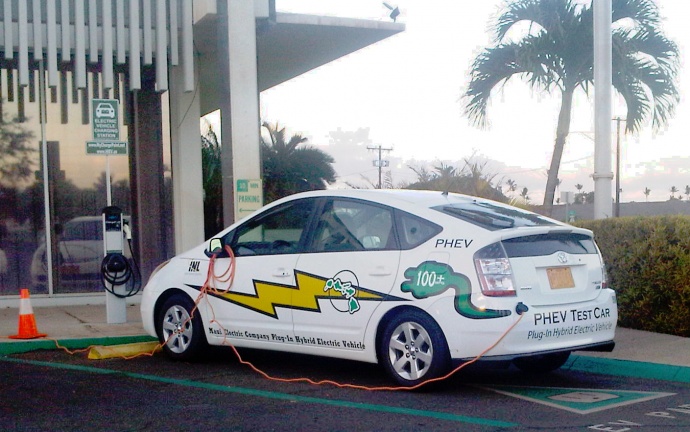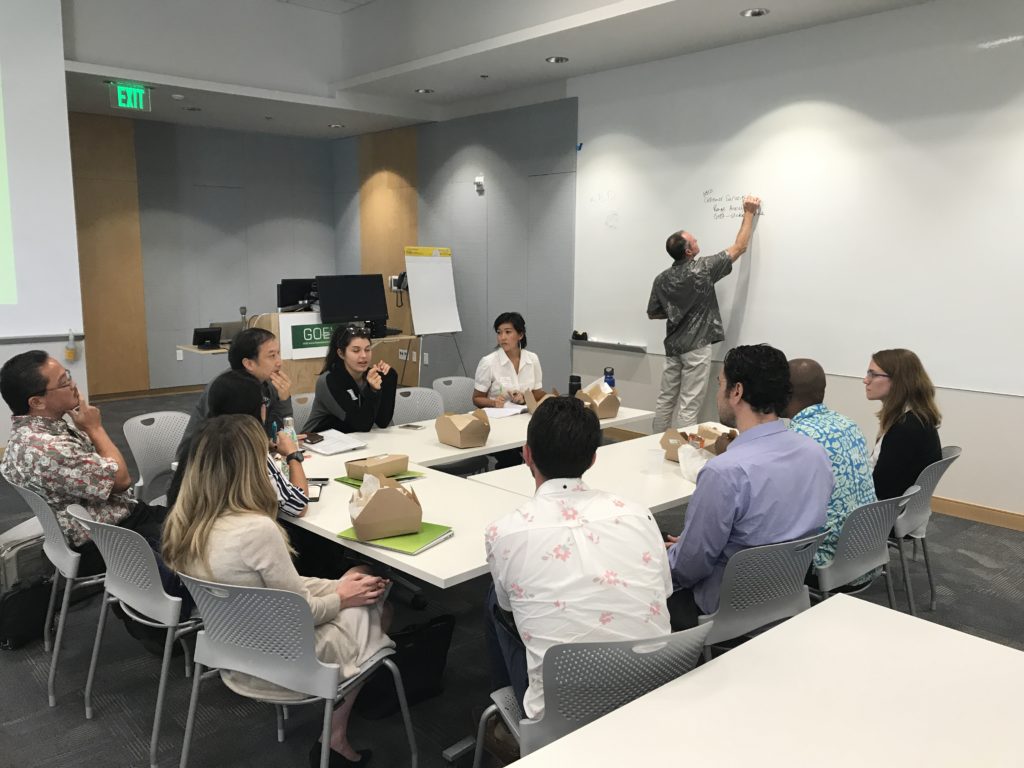Experts Explore Electrification of Hawai‘i Transportation
Energy and transportation experts joined in a workshop hosted by Hawaiian Electric to discuss strategies for advancing Hawaiʻi’s electrification of transportation efforts.

MECO electric car, photo by Wendy Osher.
More than 60 experts, dealers, manufacturers and public officials participated in the event, held Nov. 9 at Hawaiʻi Pacific University.
The one-day workshop featured local and national speakers from such companies as Ford, Lyft and Proterra discussing ways Hawaiʽi can expand the electrification of cars, trucks, buses and heavy equipment to reduce emissions, lower customer costs and bring more renewable energy online.
Speakers noted that Hawaiʽi already has the second highest rate of EV adoption in the US and that the electrification of delivery trucks, transit buses and specialty vehicles like shuttles and freight terminal tractors will be the next vehicle segment to see significant growth.

HECO EV workshop. Courtesy image.
They also noted that some of the world’s largest vehicle manufacturers will introduce dozens of all-electric models with extended battery range over the next decade.
“We need to prepare for the changing needs of our customers and communities,” said Brennon Morioka, Hawaiian Electric’s general manager of electrification of transportation. “This isn’t just Hawaiʽi, this is a global movement and we have to be ready.”
Highlights of the discussion included:
- Price remains an obstacle for buyers and more tools are needed to enable consumers to calculate the long-term operating cost of gasoline and electric vehicles. A representative of Ford praised tools like Hawaiian Electric’s online EV Watt Plan, which provides cost comparisons.
- Consumers are less troubled by “range anxiety” as battery capacity grows. However, there’s a need to provide highly visible and easy-to-use charging infrastructure, as well as new options for mobile and workplace charging.
- Policies and incentives must ensure that renewable energy and electrification work are aligned. For example, charging should be encouraged during the daytime to get maximum use of solar, helping to keep the grid stable and increasing its capacity for more renewable resources.
- Government agencies, delivery companies and public transit systems are replacing diesel vehicles with electric vehicles at an accelerating pace. Electric and hybrid vehicles, including specialized heavy equipment, now comprise 13% of the Hawaiian Electric, Maui Electric and Hawaiʽi Electric Light companies’ fleet.
At the direction of the Public Utilities Commission, Hawaiian Electric is drafting a strategic roadmap for the electrification of transportation, which will be completed in March 2018 and presented to the commission for approval. The workshop is part of the stakeholder engagement process that will contribute to the development of the roadmap.
“Hawaiian Electric is committed to the electrification of transportation to support customer choice and to help achieve our state’s renewable energy goals,” said Shelee Kimura, Hawaiian Electric senior vice president for business development and strategic planning. “It’s clear from participants in the workshop that by collaborating on these efforts Hawaiʽi is in a strong position to take advantage of the global effort to switch to electric vehicles and help reduce carbon emissions.”










